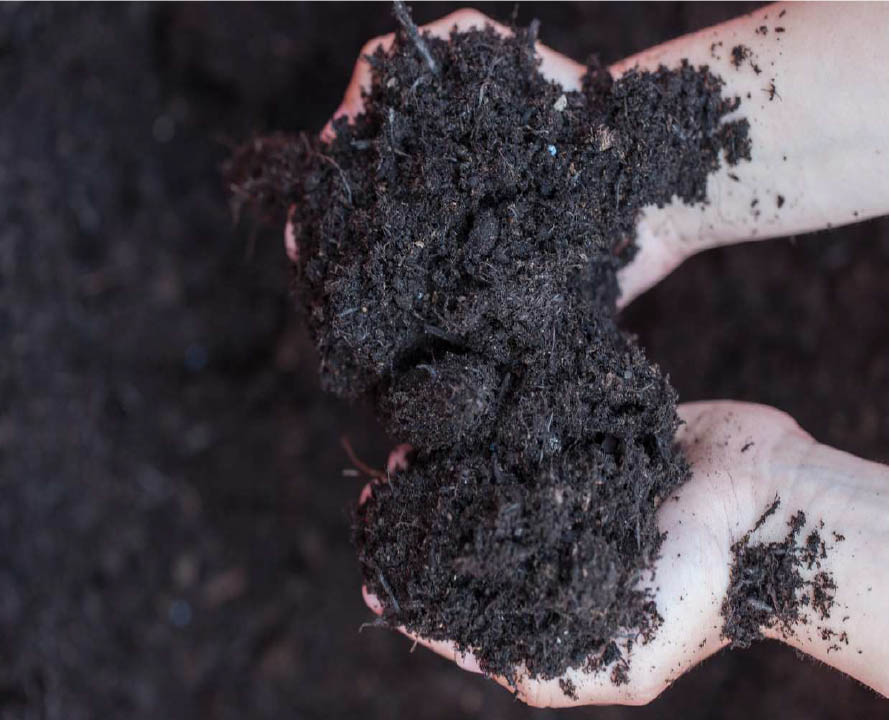
Peter Njeri 
Master’s in Agriculture with IT – Maseno University
Are you a farmer? Is your farming venture no longer profitable? Do you require increasing your yields? Do you need help in deciding which fertilizers to use? If the answer to these questions is yes, then the solution to your problem is organic fertilizers. The importance of fertilizers in agricultural production cannot be overestimated. Fertilizers are central to feeding the world, particularly in areas where the soil does not have sufficient nutrients to encourage plant life. Without this, world hunger would rise because the available lands would not produce adequate food. Specifically, fertilizers boost the soil nutrients, stabilize the soil PH, and replace nutrients depleted due to over-exploitation of land.
With industrial development, inorganic fertilizers or chemical fertilizers have been on the rise in Kenya. This has led to disequilibrium between the profit margins of agricultural businesses and the health of soils. With a population of over 45 million people, the country is thus left at a cross road on increasing food production on the one hand and maintaining healthy soils on the other. The need to feed the increasing population is dependent on land. This pressure has led to excessive use of inorganic fertilizers and low yields, which go beyond the expected level. A 2014 report by the National Accelerated Agricultural Inputs Access Program indicates a decline in land productivity due to a decrease in soil fertility associated with, among other factors, the use of acidic fertilizers.
To find a long-term solution to enhance food productivity, Kenyan farmers have now opted for Organic fertilizers compared to chemical fertilizers. They derive these fertilizers from organic wastes such as animal waste, plant waste, and even human waste. In particular, the raw materials for organic fertilizers include; any animal manure ranging from chicken to cow dung, household garbage such as kitchen waste, industrial waste such as sugar residual, and agricultural residues such as maize husks and municipal sludge such as sewage sludge. These raw materials are readily available to farmers and thus making the manufacture of such cost- effective. Companies like ours have also taken up the opportunity to recycle waste products by improving waste management. Daniel Luis Paffenholz, the founder of Taka Taka Solutions, a waste recycling company, notes that Nairobi produces over 3,000 tonnes of waste per day. This indicates the amount of waste produced in the capital city daily.
Why do you need to choose us? Here at Alkebulan, we believe in climate mitigation. We aim to keep our environment safe by reducing greenhouse gas emissions. We have a solid management team with the expertise and experience to achieve this. Our customers and society are at the center of this mission. Technology has helped us to reach out to our customers through web applications that enable them to track their order production, quality analysis, delivery schedules, and dispatches on a live basis.
At Alkebulan, our primary goal is to promote a healthy environment by substituting current energy sources with cleaner, greener, and eco- friendly fuels. Organic fertilizers account for one of our residue products in the manufacturing process. We produce organic fertilizers through the bio-digester. This is made possible by the availability of raw materials such as human and animal waste, dumb yard waste, food waste, agroforestry waste, and water hyacinths. Our bio digester is engineered to use multiple raw materials to maintain a high nitrogen and phosphorus content.
Are these fertilizers readily available in the market if you cannot make yours? Yes. Our organic fertilizers are not only cost-effective but readily available in the market. The cost of synthetic fertilizers is 55$ for 50kgs, double the price as of a year ago. Farmers have had to make a difficult decision. One I am sure that you would also make. Whether to go deeper into their pockets or reduce their cost by cutting the acreage they put under production. Farmers have opted for the latter option. A decision you would make, right?

How, then, has this option helped the farmers? Organic farming is heavily dependent on organic wastes such as manure. The use of organic fertilizers ensures that there is a balance between maintaining a healthy environment and increasing production. It promotes healthy soil. Healthy soil means one that is healthy for both humans and animals. Who doesn’t wasn’t to remain healthy? Organic fertilizers reduce soil acidity.
Additionally, organic fertilizers improve soil structure as they maintain the activities of soil microorganisms. This enhances natural soil formation and soil fertility by providing additional nutrients necessary for the crops, thus improving crop sustainability. Organic farming also reduces soil erosion by reducing exposure to chemicals that erode the soil.
The use of organic fertilizers also increases soil water retention capacity. They maintain a good soil structure to encourage agricultural farming even in the future. The reliance on green energy reduces greenhouse gas effects reversing global warming through natural carbon sequestration, increasing soil productivity and carbon storage, and reversing climate change. Furthermore, the use of organic fertilizers encourages sustainability because it makes use of biodiversity. It promotes the reproduction and propagation of traditional seeds that have become resistant to different ecological environments. The use of non-chemical substances in farming restores and recolonizes organisms that benefit crop production.
Save for their cost; chemical fertilizers have both long and short-term effects when used over a long period. Unlike organic fertilizers, chemical fertilizers increase soil acidity or change the soil’s ability to absorb essential nutrients. This reduces the concentration of organic matter, humus content, and beneficial soil organisms, stunting plant growth, altering soil PH, and developing pests. In addition, excessive use of chemical fertilizers may leak below the root and reach the groundwater, thus polluting water sources. High nitrate concentration in water sources significantly risks human and animal health. Constant use of polluted water on crops also reduces the quality and health of the soil, thus causing soil contamination.
References
Business Daily, Expensive fertilizer pushes farmers to organic farming. (2022, April 21). Retrieved from: https://www.businessdailyafrica.com/bd/data-hub/expensive-fertiliser-pushes-farmers-to-organic-farming-3790004

